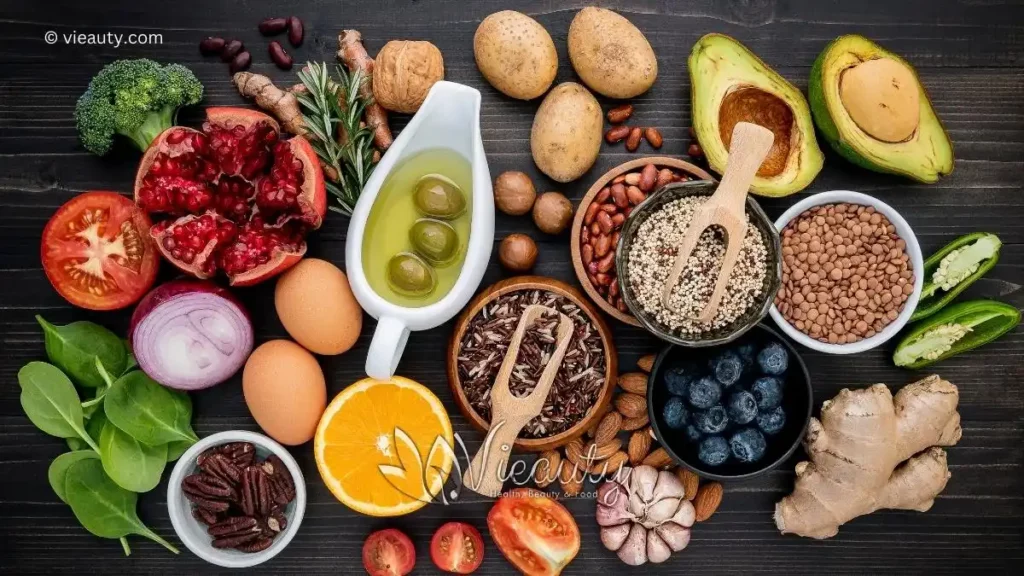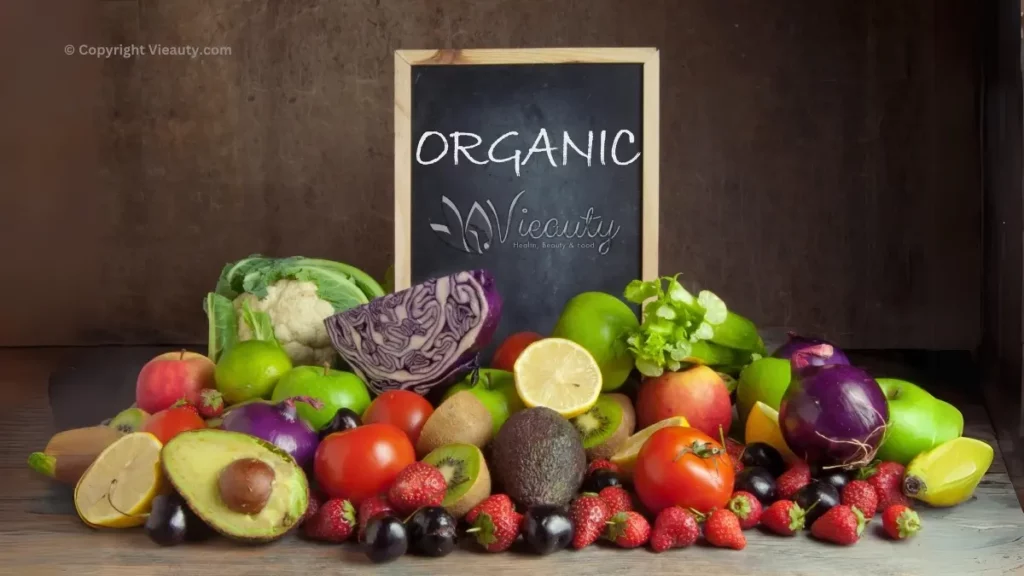Why Organic Food Is Worth The Extra Cost
Unveiling the True Benefits of Investing in Organic Produce
In today’s fast-paced world, where convenience often takes precedence over health-conscious choices, a growing number of individuals are starting to rethink their dietary habits. Enter the organic food movement – a trend that has gained significant momentum in recent years as more people realize the importance of what they put into their bodies. Find out why organic food is worth the extra cost. Explore the reasons to invest in your health and support sustainable farming practices.
But what does organic actually mean when it comes to food? And why are so many individuals willing to pay extra for it?
Table of Contents
- What Is Organic Food?
- Difference between conventional farming methods and organic farming practices
- Benefits of choosing organic food
- Addressing Common Misconceptions About Organic Food
- The Benefits of Choosing Organic Food
- Final Thoughts
- FAQs:
- Q: Is organic food really better for you?
- Q: How does organic farming benefit the environment?
- Q: Are there any studies supporting the benefits of organic food?
- Q: Does buying organic food support sustainable agriculture?
- Q: Will I notice a difference in taste when switching to organic foods?
- Q: Is it worth paying the extra cost for organic food?
- Q: Can buying organic food help reduce exposure to harmful chemicals?
- Q: Are there any specific certifications I should look for when buying organic products?
What Is Organic Food?
Organic food refers to produce and other agricultural products grown without synthetic pesticides, fertilizers, genetically modified organisms (GMOs), or irradiation techniques. It is about going back to basics—choosing natural and environmentally sustainable farming methods that prioritize soil health and biodiversity preservation. The result is not only better-tasting and more nutritious food but also a safer option for both our bodies and the planet.

With an increasing interest in healthy eating habits, consumers have become savvier about reading labels and seeking out options that align with their values. People want reassurance that the fruits, vegetables, dairy products, meats – everything they consume – are free from harmful chemicals or genetic modifications linked to potential health risks down the line. While organic options may come with a higher price tag than conventionally grown counterparts, understanding its benefits can help justify this additional investment in our well-being. Considering whyif organic food is worth the extra cost? Explore the value of organic options for your health, the planet, and future generations.
So let’s delve deeper into why choosing organic food is truly worth the extra cost and how it can have profound impacts on our overall health as well as contribute positively towards building a sustainable future for all.
Difference between conventional farming methods and organic farming practices
Conventional agriculture relies heavily on the use of synthetic chemicals such as pesticides, herbicides, and fertilizers. These chemicals are used to control pests, enhance crop growth, and suppress weeds. However, excessive use of these substances can have detrimental effects on both human health and the environment. Pesticides in particular have been linked to various health issues such as cancer, hormone disruption, and neurological disorders.

In contrast, organic farming practices prioritize natural methods to cultivate crops without relying on synthetic chemicals. Instead of using chemical pesticides, organic farmers employ techniques like:
- crop rotation,
- companion planting,
- and biological pest control to prevent pests from damaging their plants.
By avoiding synthetic chemicals in cultivation processes and instead working with nature’s own systems for pest regulation and soil fertility preservation (such as composting), organically grown crops offer a safer alternative for consumers while also promoting environmental sustainability.
Overall, choosing organic food means opting for produce that has been cultivated without harmful pesticides or other artificial inputs commonly found in conventional agriculture.
Benefits of choosing organic food
Nutritional value:
Numerous studies have shown that organically grown fruits and vegetables often contain higher levels of nutrients compared to their conventionally grown counterparts. For example, a study published in the Journal of Agricultural and Food Chemistry found that organically grown berries had significantly higher levels of antioxidants and vitamin C compared to conventionally grown berries. Another study conducted by the Organic Center discovered that organic fruits and vegetables contained on average 20-40% more key vitamins and minerals than conventionally-grown produce.
The reason behind this difference lies in the farming practices used in organic agriculture. Instead of relying on synthetic fertilizers, pesticides, and genetically modified organisms (GMOs), organic farmers focus on building healthy soil through composting, crop rotations, and natural pest control methods.

By nurturing nutrient-rich soils, organic farmers create an environment where plants can thrive naturally without chemical assistance. This results in crops that are not only richer in essential nutrients but also free from potentially harmful residues commonly found on conventionally-grown produce.
Furthermore, when it comes to animal products such as meat, dairy, and eggs – which are sources of essential proteins – choosing organic is even more crucial. Organic livestock is raised without routine antibiotic use or growth hormones like conventional livestock may be subjected to. As a result, consuming organic animal products ensures you’re getting untainted proteins while supporting ethical treatment towards animals.
By opting for organically sourced foods over conventional alternatives enriched with chemicals or antibiotics resistant microbes we actively contribute towards better nutrition habits within our society while encouraging sustainable agricultural practices — ultimately leading to healthier individuals as well as longevity for ourselves & generations to come So next time you pick up your groceries remember how precious nutrition really is!
Reduced exposure to harmful chemicals:
When choosing organic food, one of the significant benefits is that it reduces your exposure to harmful chemicals such as pesticides. Conventionally grown crops are often sprayed with synthetic pesticides and herbicides, which can have detrimental effects on both our health and the environment.
Prolonged exposure to these chemicals has been linked to various health problems, including:
- an increased risk of certain cancers,
- reproductive disorders,
- and neurodevelopmental issues in children.
For instance, a study conducted by the Environmental Working Group (EWG) found detectable levels of pesticide residue in over 70% of conventional produce samples tested. Opting for organic minimizes this potential harm from pesticide residue ingestion.
Organic farmers use natural methods like crop rotation, companion planting, and biological pest control techniques to maintain healthy soil and ward off pests. Additionally, they rely on naturally derived substances or low-risk alternatives approved for organic agriculture when needed. By choosing organic foods, you prioritize your well-being by reducing your exposure to potentially harmful chemicals commonly found in conventionally grown produce.
Overall, making the switch to organic means giving yourself peace of mind knowing that you are consuming food produced without the use of synthetic pesticides or harsh chemical additives. It’s a worthwhile investment in your long-term health and supports sustainable farming practices that prioritize both human wellness and environmental preservation
Environmental Impact:
One of the most compelling reasons to choose organic food is its positive environmental impact. Organic farmers employ sustainable agricultural practices that prioritize the health and preservation of our planet’s resources. By avoiding synthetic fertilizers, pesticides, and genetically modified organisms (GMOs), organic farming helps maintain soil fertility by promoting natural nutrient cycling through crop rotation, composting, and the use of green manure cover crops.
Furthermore, organic farms strive to conserve water resources. Unlike conventional agriculture which relies heavily on irrigation systems, organic farmers prioritize water conservation through techniques such as drip irrigation and mulching. The result is reduced water usage and less strain on local water sources.
By choosing organically produced foods, you are also supporting biodiversity preservation. Organic farms are havens for beneficial insects, birds, bees, butterflies, and other pollinators essential for maintaining diverse ecosystems. Additionally, these farms tend to have higher levels of plant diversity that provide habitats for a variety of wildlife species.

Organic farming methods help mitigate climate change too. By avoiding synthetic fertilizers made from fossil fuels and implementing carbon sequestration methods like agroforestry or incorporating cover crops into farming systems that capture atmospheric CO2 emissions in the soil; organic farming has the potential to reduce greenhouse gas emissions significantly compared to conventional practices.
When you opt for organic food products over their conventionally grown counterparts – not only are you making a healthier choice for yourself but also making a resounding statement towards preserving our environment and ensuring its sustainability for future generations.
Addressing Common Misconceptions About Organic Food
Cost Perception vs. Long-Term Health Investment:
One common misconception about organic food is that it is unaffordable. Many people are under the impression that choosing organic means breaking the bank, but this assumption overlooks an important aspect – long-term health investment. While it’s true that organic options do tend to be pricier than conventionally grown counterparts, they offer several benefits for your overall well-being.
Investing a little extra in organic food upfront can potentially save you money on healthcare costs down the line. Conventionally grown produce often contains pesticide residues and synthetic additives that have been linked to various health issues such as hormone disruption, neurological problems, and even cancer. By opting for organic foods, which are free of harmful pesticides and genetic modifications, you are making a conscious decision to prioritize your long-term health by reducing your exposure to these potential risks.
Identifying Credible Certifications:
With so many products claiming to be organic flooding the market, it can be challenging for consumers to differentiate between genuine organic items and those merely capitalizing on a trendy label. To ensure that what you’re purchasing truly meets organic standards, look out for credible certifications when shopping.

The United States Department of Agriculture (USDA) Organic label seals guarantee that products meet strict federal regulations regarding how crops are grown and livestock is raised. This certification ensures adherence to guidelines prohibiting synthetic fertilizers and chemical pesticides while promoting sustainable farming practices.
Additionally, there are internationally recognized certifications like Canada Organic or EU Organic labels that indicate compliance with equivalent rigorous standards outside of the United States. Consulting these trusted certifications will not only give you peace of mind but also help support authentic producers who invest time and effort into maintaining high-quality principles throughout their production process.
By being aware of USDA Organic or other reputable certifications when purchasing your food items – whether produce or packaged goods –you can confidently select quality-assured organic products while contributing to the growth of sustainable agriculture practices.
The Benefits of Choosing Organic Food
- One key benefit of choosing organic food is the absence of harmful chemicals and pesticides. Conventionally grown fruits and vegetables are often treated with a variety of synthetic chemicals to ward off pests and enhance their growth. These pesticides not only remain on the surface of the produce but can also seep into the soil, contaminating groundwater and other water sources. By opting for organic food, you can minimize your exposure to these toxic substances.
- Another advantage is that organic farming practices prioritize sustainability and environmental conservation. Organic farmers use methods like crop rotation, natural fertilizers, and biological pest control to maintain soil health without depleting its essential nutrients or polluting nearby ecosystems. This sustainable approach helps protect wildlife habitats, reduces greenhouse gas emissions, conserves water resources, and promotes biodiversity.
- When it comes to nutrition, studies have shown that organic produce may offer higher levels of certain vitamins, minerals, antioxidants, and beneficial compounds compared to conventionally grown counterparts. For instance, research has found that some organic fruits contain more vitamin C than non-organic varieties. Additionally, organically raised livestock tend to have lower levels of unhealthy fats while offering higher omega-3 fatty acids content due to their natural diet.
Final Thoughts
In summary, choosing organic food comes with numerous benefits for both our health and the environment by reducing exposure to harmful chemicals while supporting sustainable farming practices. While there may be a slight increase in cost associated with purchasing organically produced items compared to conventionally farmed ones; investing in high-quality nutritious food is an investment in your long-term well-being.
Ultimately it’s important that we make informed decisions about our food choices considering both health factors as well as environmental implications. By supporting local farmers who follow ethical practices such as growing organically or sourcing products sustainably we can further encourage healthier lifestyles while taking responsibility for our planet. Let’s opt for organic food as a way to nourish ourselves and contribute to a more sustainable future.
FAQs:
Q: Is organic food really better for you?
A: Yes, organic food is grown without synthetic pesticides and fertilizers, making it a healthier option.
Q: How does organic farming benefit the environment?
A: Organic farming practices help protect soil health, reduce pollution, and promote biodiversity.
Q: Are there any studies supporting the benefits of organic food?
A: Yes, research has shown that organic food contains higher levels of certain nutrients and antioxidants.
Q: Does buying organic food support sustainable agriculture?
A: Yes, choosing organic supports farming methods that prioritize environmental sustainability and animal welfare.
Q: Will I notice a difference in taste when switching to organic foods?
A: Many people find that organic foods have a fresher and more natural taste compared to conventionally-grown produce.
Q: Is it worth paying the extra cost for organic food?
A: While organic food may be more expensive, many believe the health and environmental benefits make it worth the cost.
Q: Can buying organic food help reduce exposure to harmful chemicals?
A: Absolutely, choosing organic reduces your exposure to synthetic pesticides and genetically modified organisms (GMOs).
Q: Are there any specific certifications I should look for when buying organic products?
A: Look for products certified by organizations like USDA Organic or the Non-GMO Project to ensure they meet strict standards for organic production.






